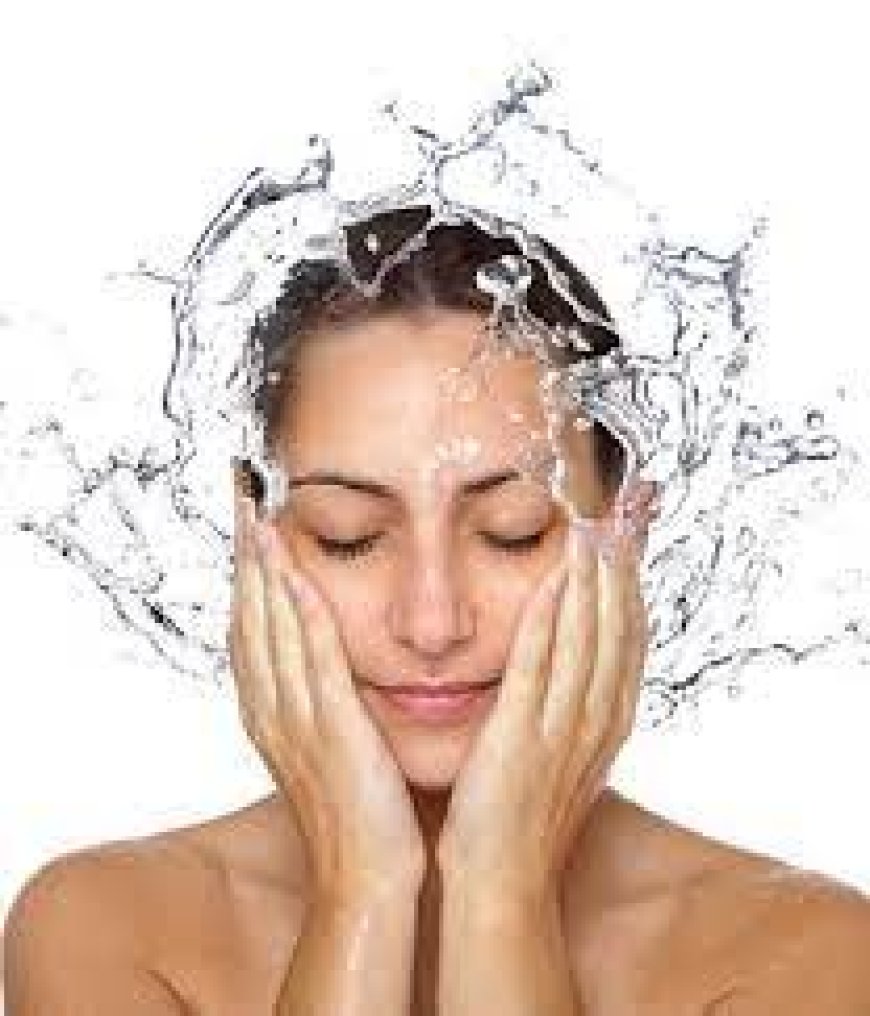Oily Skin Face Wash The Greatest Ways to Fix Your Issue
Understanding your skin's specific requirements and selecting products and routines that successfully meet your skins need are key to selecting the best face wash for oily skin.

Because oily skin commonly causes breakouts, clogged pores, and a shiny face, managing oily skin can be challenging. Selecting a face wash that can lower oil production without drying out the skin is the key to managing oily skin. The greatest ways to choose a face wash for oily skin will be covered in this piece, along with routines, hints, and suggestions to help you achieve a balanced, youthful-looking complexion.
Why Does Oily Skin Occur?
When the sebaceous glands create more sebum than is required, oily skin results. Stress, nutrition, hormone fluctuations, and heredity are some of the factors that contribute to this illness. While sebum is essential for keeping the skin hydrated, excess production can lead to a greasy appearance and various skin issues.
Common Issues Associated with Oily Skin
Oily skin is often linked to enlarged pores, blackheads, and acne breakouts. The overproduction of oil can trap dirt and dead skin cells, clogging pores and creating a breeding ground for bacteria. Addressing these issues requires a targeted approach, starting with the right cleansing routine.
Choosing the Right Face Wash for Oily Skin
· Salicylic Acid:
This beta-hydroxy acid (BHA) is excellent for exfoliating the skin, removing dead cells, and unclogging pores. It penetrates deep into the skin, reducing oil production and preventing acne.
· Benzoyl Peroxide:
Known for its antibacterial properties, benzoyl peroxide helps eliminate acne-causing bacteria and reduces inflammation, making it ideal for oily, acne-prone skin.
· Tea Tree Oil:
A natural alternative with antimicrobial properties, tea tree oil can help control oil production and soothe the skin without causing irritation.
· Clay and Charcoal:
These ingredients are effective at absorbing excess oil and detoxifying the skin, making them perfect for oily skin types.
Ingredients to Avoid
Alcohol:
While it can provide a temporary matte finish, alcohol can strip the skin of its natural oils, leading to increased sebum production in the long run.
Fragrance:
Synthetic fragrances can irritate the skin and cause breakouts, especially for those with sensitive skin.
Oils and Butters:
Heavy oils and butters can clog pores and exacerbate oily skin conditions.
Best Practices for Using Face Wash on Oily Skin
Twice Daily Cleansing:
It’s important to wash your face twice a day to remove excess oil and impurities. Over-washing can lead to dryness and trigger more oil production, so finding a balance is key.
Gentle Technique:
Use lukewarm water and gently massage the cleanser into your skin in circular motions. Avoid scrubbing, as it can irritate the skin and increase oil production.
Pat Dry:
After rinsing, gently pat your face dry with a clean towel. Rubbing can stimulate oil glands and lead to irritation.
Toning:
Use an alcohol-free toner with ingredients like witch hazel or rose water to balance the skin’s pH and control oil.
Moisturizing:
Opt for a lightweight, non-comedogenic moisturizer to keep the skin hydrated without clogging pores.
Exfoliating:
Incorporate a gentle exfoliant once or twice a week to remove dead skin cells and prevent clogged pores.
Benefits of Natural Ingredients
Using natural ingredients in your skincare routine can minimize the risk of irritation and allergies. They are often gentler on the skin and can provide effective results without the harshness of synthetic chemicals.
Long-term Solutions for Managing Oily Skin
Hydration:
Drink plenty of water to keep your skin hydrated from the inside out. Dehydration can lead to increased oil production as the skin tries to compensate.
Balanced Diet:
Include foods rich in omega-3 fatty acids, zinc, and antioxidants to support skin health and reduce inflammation.
Stress Management:
Practice stress-reducing techniques such as meditation, yoga, or exercise to help balance hormones and reduce oil production.
Regular Skincare Adjustments
As your skin changes over time, it’s important to reassess your skincare routine. Seasonal changes, hormonal fluctuations, and lifestyle shifts can all affect oil production, requiring adjustments to your cleansing routine and products.
The Impact of Environmental Factors on Oily Skin
How Climate Affects Oil Production
The environment plays a significant role in how your skin behaves. Hot and humid climates often exacerbate oil production, making your skin appear greasier. Conversely, cold and dry environments can lead to dehydration, prompting your skin to produce more oil to compensate. Understanding how climate affects your skin can help you adjust your skincare routine accordingly.
Protecting Your Skin from Pollution
Pollution can clog pores and lead to increased oil production and breakouts. To protect your skin, consider using a face wash that contains antioxidants, which can help neutralize the harmful effects of free radicals. Additionally, cleansing your face thoroughly at the end of the day can remove pollutants and prevent them from causing damage.
The Role of Hormones in Oily Skin
Hormonal Changes and Skin Health
Hormones significantly influence oil production, particularly during puberty, menstruation, pregnancy, and menopause. These changes can trigger the sebaceous glands to produce more oil, leading to breakouts and shine. Being aware of these hormonal fluctuations can help you anticipate changes in your skin and adjust your skincare routine accordingly.
Managing Hormonal Imbalances
If hormonal imbalances are a major factor in your oily skin, consider consulting a dermatologist or healthcare provider. They may recommend treatments or lifestyle changes that can help regulate hormones and reduce oil production. This could include medication, dietary adjustments, or stress management techniques.
Advanced Skincare Techniques for Oily Skin
Incorporating Facial Masks
Facial masks specifically designed for oily skin can provide deep cleansing and control oil production. Clay masks, in particular, are effective at drawing out impurities and reducing shine. Use these masks once or twice a week as part of your skincare routine for optimal results.
The Benefits of Facial Steaming
Facial steaming is a great way to open up pores and remove excess oil and impurities. This process enhances the effectiveness of your face wash by allowing it to penetrate deeper into the skin. Follow up with a toner and moisturizer to close the pores and lock in hydration.
Understanding your skin's specific requirements and selecting products and routines that successfully meet those demands are key to selecting the best face wash for oily skin. It is possible to attain a balanced and healthy complexion that reduces oil production and brings out the natural radiance of your skin by concentrating on the appropriate components, procedures, and complimentary skincare routines.
What's Your Reaction?

























